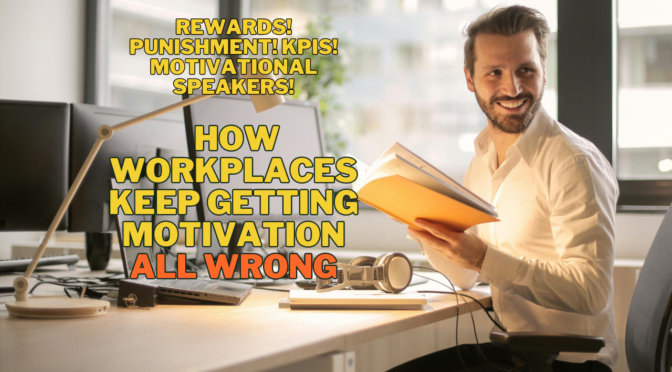
The constant hunt for more money, eternally chasing the next raise, measuring yourself against the number on your pay check is no way to run a career, and no way to live a work life.
Using money as your yardstick is seductive because it’s one of the few objective measures of progress in a career. If you made 100,000 last year and 150,000 this year you must be doing better, right?
Wrong. Your salary, no matter how large, can never make you happy at work. Sacrificing happiness at work for more money is a terrible trade – one that you will end up regretting.
Here’s five reasons why.
1: More money does not make you happier
Most people think that having a higher income would make them happier. They’re wrong!
That is the conclusion of a study by Two Princeton professors, economist Alan B. Krueger and psychologist and Nobel laureate Daniel Kahneman, who say that:
The belief that high income is associated with good mood is widespread but mostly illusory. People with above-average income are relatively satisfied with their lives but are barely happier than others in moment-to-moment experience, tend to be more tense, and do not spend more time in particularly enjoyable activities.
The problem is that people still act on their mistaken belief that making more money makes them happier:
Despite the weak relationship between income and global life satisfaction or experienced happiness, many people are highly motivated to increase their income. In some cases, this focusing illusion may lead to a misallocation of time, from accepting lengthy commutes (which are among the worst moments of the day) to sacrificing time spent socializing (which are among the best moments of the day).
Which is just a fancy way of saying that you may think that switching jobs to get a 25% raise in return for a 2-hour commute or a 70-hour work week or ten days a month of business travel is a good deal. You’re wrong. You’d be happier with a lower salary, a more fun job and more time with your friends and family.
2: Always thinking of money is bad for you
“Money pushes people into a state where they become focused on achieving their own goals without help of others,” says researcher Kathleen Vohs, assistant marketing professor at the Carlson School of Management, University of Minnesota.
They performed a series of experiments where subjects were asked to solve a difficult puzzle and told they could ask for help. Some of the subjects were subliminally primed to think of money, eg. by placing a pile of monopoly money in their field of vision or by giving them a warm-up exercise where they had to de-scramble sentences related to money. (source)
The experiment showed that thinking of money had a significant, negative effect on the subjects:
- They became less likely to ask for help
- They became more reluctant to help others
- They became less generous
- They isolated themselves more from others
So if your success depends on you working well with others, on being able to help others and ask for help, thinking of money (even in a subtle and subconscious way) makes you less effective. On the other hand, if your success depends on you being selfish and isolated – go right ahead, make money your only goal :o)
One group of people who are particularly at risk are those who think that “time is money”. Bob Sutton, author of the excellent book The No Asshole Rule, has a great post on how the billable hour affects people. This constant focus on money even means that “lawyers watching their kids play soccer admitted to mentally ticking away lost income for each minute they stood on the sidelines.??? Ouch.
3: The actual amount doesn’t matter – fairness does
Try this experiment: Get a bunch of Capuchin monkeys, and train them to give you a small, polished granite rock in exchange for a slice of cucumber. Capuchins are pretty clever, and soon the monkeys learn that when they hand over the rock, they get their treat.
Then try something new: Get two of these monkeys together, and give one of them a better treat. Capuchin monkeys like cucumber fine, but they like grapes even better because they’re sweeter. When one capuchin sees you paying another one in grapes, it refuses to cooperate, and will no longer hand over the rock in exchange for cucumber. “Listen, buster,??? it seems to say, “you’re paying that guy in grapes and my work is at least as good. I want grapes too, or I’m going on strike.” (source)
In another experiment using brain-scanning equipment, this time on humans, researchers found a center in our brains that lights up whenever we believe we’re being treated unfairly. It seems that fairness is not just a nice ideal to strive for—we have a biological need to be treated fairly (source).
So we humans have a built-in desire for fairness that even seems to be present in other species close to us. If you feel that your salary is unfair, this will make you unhappy!
4: It’s not getting what you want – it’s wanting what you get
Stephen Shapiro, author of the excellent book Goal Free Living, writes about a German study that shows that what really matters is the gap between your current income and your desired income. When people wish for more money than they have, they tend to be unhappy.
There are of course two ways to close this gap, the traditional one being to make more money. The downside of this approach is, that very often, more isn’t enough and the more people have, the more they want.
The other approach is much more sustainable, and it is to want what you have. To realize that once your most basic needs are met, more money, a bigger house, a larger car and flat-screen TVs in every room will not make you any happier than you are today!
But being happy with what you have, will.
5: Your salary can make you unhappy – but not happy
Herzberg’s motivational theory divides motivational factors in two categories: Hygiene and motivational.
The hygiene factors can make us unhappy when they’re not present, but their presence can’t make us happy. The motivational factors can actually make us happy. Salary falls squarely in the “hygiene” category, meaning that getting paid well can remove dissatisfaction – but it can’t create satisfaction.
What to do instead: cultivate a healthy attitude towards money
I want to make this very clear: I’m not against money. I looooooove money. Money is fun. There is nothing wrong with making tons of it.
And I’m not saying you should ignore money completely and just accept whatever your workplace is willing to pay you.
I’m also not saying that you have to choose – that it can only ever be money or happiness. You can have both. But the way to get it is to cultivate a healthy attitude towards money. Which is this:
Your salary makes it possible for you to come to work. It’s not what motivates you or makes you happy. It’s a means, not an end.
An unfair salary has the power to make you unhappy – a fair one can’t make you happy.
Never sacrifice your happiness at work for money.
If you make all your career decisions based on money you will always be chasing the next, larger paycheck, never stopping to think if you like what you do in pursuit of that next raise.
If you instead decide based on what will make you happy at work, there’s a much bigger chance that you will be. You will probably also make more money.
You should make an effort to be paid what you’re worth – to get what is fair considering how much value you create and what other people in the company and in similar positions elsewhere are getting. Then forget about money and focus on enjoying your job.
And you know what: This is pretty hard. I’m doing well financially, and I still dream of all the great stuff more money could by me. It’s damn hard to let go of. But I know that the main reason I’m happy today is not that I make more money than before – it’s that I enjoy what I have and that I live squarely within my means.
THAT is true wealth, and I’m not exactly the first to say so (by a long shot):
“Contentment is natural wealth, luxury is artificial poverty???
– Socrates
“We tend to forget that happiness doesn’t come as a result of getting something we don’t have, but rather of recognizing and appreciating what we do have.”
– Frederic Koenig
“There is no end of craving. Hence contentment alone is the best way to happiness. Therefore, acquire contentment.
– Swami Sivananda
And what about you? How important is your salary to you? What matters the most to you – money or happiness at work? How have you chosen in your career? Write a comment, I’d really like to know.
Related posts:








 I recently wrote
I recently wrote 
 After I wrote on my blog that I’m a huge fan of
After I wrote on my blog that I’m a huge fan of 
 Really, getting to do what you love to do every day, that’s the ultimate luxury. And particularly when you can do it with terrific people around you.
Really, getting to do what you love to do every day, that’s the ultimate luxury. And particularly when you can do it with terrific people around you.

